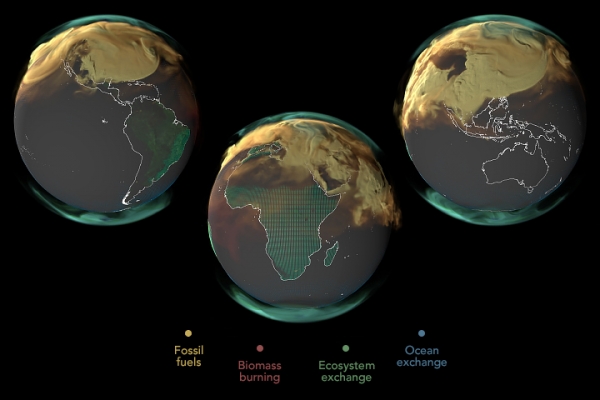Carbon dioxide emissions from fossil fuels rose again in 2023, reaching record levels, according to estimates from an international team of scientists.
Carbon dioxide emissions from fossil fuels rose again in 2023, reaching record levels, according to estimates from an international team of scientists. The continued rise in emissions from the burning of oil, coal, and natural gas is impeding progress to limit global warming, the scientists said.
The finding is part of an annual checkup on Earth’s carbon cycle called the Global Carbon Budget. In this annual assessment, scientists quantify how much carbon was added to the atmosphere from burning fossil fuels and land-use change, and how much carbon was removed from the atmosphere and stored on land and in the ocean.
Scientists’ early analysis of 2023 data shows that emissions from fossil fuels rose 1.1 percent in 2023 compared to 2022 levels, bringing total fossil emissions in 2023 to 36.8 billion metric tons of carbon dioxide. When including other sources—such as deforestation and the extreme wildfire season in Canada—total emissions in 2023 were estimated to be 40.9 billion metric tons. Both 2023 and 2022 saw record increases in carbon dioxide from fossil fuels, according to the analysis.
Read more at: NASA Earth Observatory
Photo Credit: Andrew J. Christensen, Anansa Keaton-Ashanti, and Mark SubbaRao, NASA




